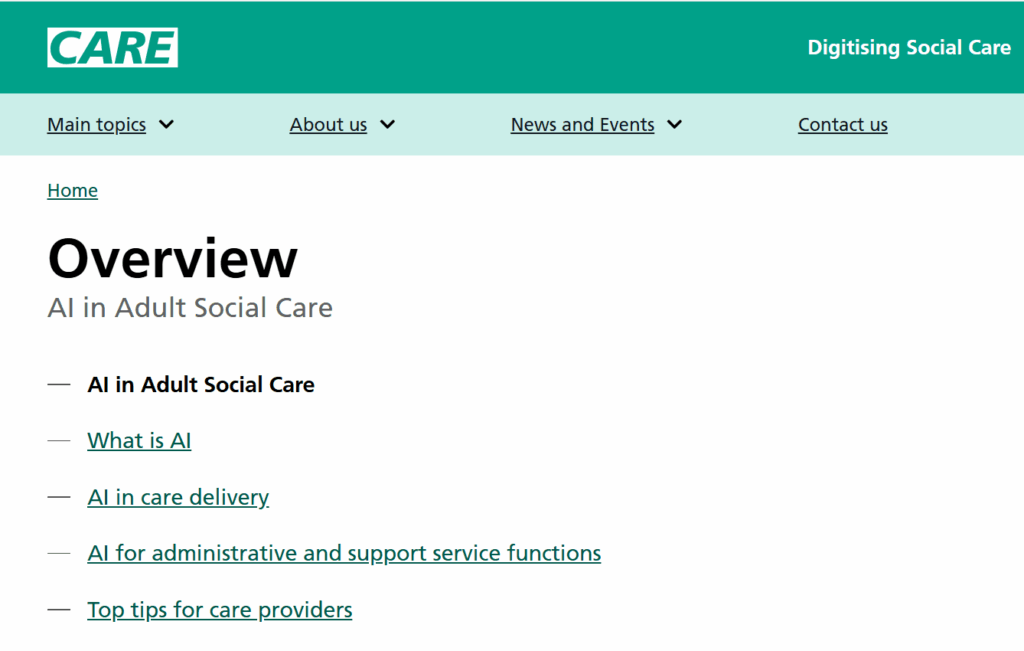
July 22nd 2025
The Digitising Social Care programme commissioned the Digital Care Hub to develop guidance for adult social care providers on Artificial Intelligence (AI). Throughout 2024, the Digital Care Hub convened three virtual meetings with interested care providers to discuss AI.
The findings from these meetings can be found on the Digitising Social Care website, AI in Adult Social Care and include top tips for us on AI. The findings explore how artificial intelligence is being integrated into care delivery to enhance both administrative efficiency and the quality of support provided to individuals.
There isn’t an agreed upon definition for what Artificial Intelligence (AI) is. Generally, AI is when machines or software perform tasks that typically require human intelligence.
AI technologies are already being used in various ways across adult social care. These include sensor-based systems, generative AI tools, and data analytics platforms. Sensor technologies, such as acoustic monitoring and movement detectors, help track vital signs, detect falls, and monitor changes in gait. These systems can predict potential health issues and alert caregivers in real time, enabling early intervention and reducing the need for intrusive checks, especially useful during nighttime care.
Generative AI is being applied to streamline administrative tasks like care planning, assessments, and documentation. These tools can significantly reduce the time spent on paperwork, allowing care staff to focus more on direct support. However, the guidance stresses that AI generated care plans must always be reviewed by a human to ensure accuracy and personalisation.
Despite the benefits, the findings emphasise caution and responsibility in adopting AI.
Key considerations include:
- Data protection: Organisations must comply with UK GDPR, especially when handling sensitive personal data. Using free or unverified tools without proper contracts can pose serious risks.
- Ethical use: AI should be implemented in ways that uphold fairness, transparency, and accountability. The Oxford Project offers a framework for ethical AI use in social care.
- Bias mitigation: AI systems can inherit biases from their training data, potentially leading to unfair or discriminatory outcomes. Care providers are encouraged to be vigilant and proactive in identifying and addressing these biases.
Overall, the guidance encourages care providers to explore AI thoughtfully, balancing innovation with ethical and legal responsibilities and to improve outcomes for those receiving care.
To read in more detail findings from the meetings please visit AI in Adult Social Care | Digitising Social Care and The Oxford Project offers a framework for ethical AI use in social care.
View all News